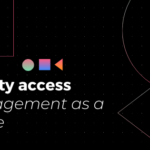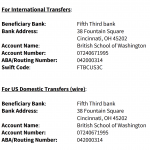The importance of choosing the best keywords for your research paper
There are a few things you need to know about keyword research before you actually use it.
First, there is no such thing as a single-word keyword. Search engines can index any word that is used on the internet for any type of business or industry, but the search engines themselves do not necessarily index every single word that can be linked to a website.
Second, because search engines are finite resources, they have different strategies for different keywords. If you want to get as many clicks as possible while having a low bounce rate, then you will want to use different keywords than if you want to only get people who have already visited your website and clicked on your product link (a tactic known as “pageRank”).
Third, there is no one-size-fits-all approach to keyword research: there are several different techniques and the best way of doing it will depend on what you are trying to achieve with your research paper.
Fourth, and finally, there are very few tips for finding really good keywords. You can’t just go out hunting for keywords.
It will take years of experience before you can find anything useful at all! There is no magic formula or shortcut here — just some common sense and some practice from the past few years (and hopefully the future too!).
Tips while doing and finding the best keywords for your research paper
There are a number of things that you can do to help you in your research paper. Not all, but most of them are related to keywords and how you choose the best ones for your paper. Now, before we go on, let’s just say the following:
- We don’t think that there is such a thing as a “best” keyword.
- While there are some very good keywords that can help you achieve your goal, other than being related to whatever topic of your research paper, they do not have any particular strength or weakness.
- When it comes to researching on the Internet (the best place to start), we recommend using Google instead of Bing (there is no need to worry about search engine rankings).
- Once you have found a keyword or two that meet those criteria and are suitable for your research paper, we suggest trying out different variations of them and see which one has the best results for your topic.
So what exactly should you do?
To begin with, there is nothing wrong with wanting to use keywords that have been used in other papers/books/journal articles too; however, it would be more effective if you chose keywords from different categories/subjects (e.g., pain & suffering vs happiness) rather than just focusing on one specific type of word (e.g., “software engineering” vs “software product”).
We can help you here too by suggesting some related topics and their most popular keywords (e.g., software engineering vs software product; workplace vs company; etc.). This way, it will be much easier for researchers who have similar topics/categories in mind to find similar keywords without having to re-write their entire content!
Down below are some tips while doing and finding How to choose the best keywords for your research paper? Focus on the main topic of your research. Avoid keywords that are only one word. Avoid overlapping keywords in your title. Perform keyword research. Avoiding the duplication of words.
There are few tips while doing and finding How to choose the best keywords for your research paper? Focus on the main topic of your research. Avoid keywords that are only one word.
A focus on the main topic of your research
The role of keywords in a document is often seen as a means of attracting and retaining customers. A research paper is an important part of academic work, however, and it can be easy to neglect ways in which your paper can be used by others to gain access to information.
However, this kind of information may be essential for students to succeed academically, so it is therefore crucial that students focus on choosing the best keywords for their research paper.
The purpose of a research paper is to provide accurate information about a particular topic. To do so, you need to choose the correct keywords or search terms that are appropriate for your content. This will ensure that search engines like Google will know exactly where you are aiming your reader’s attention.
When they find your papers and papers from other sources on the internet.
As such it is important that you choose key phrases in your content and query which will help people seek out what you have written about. You should also choose keywords that are not just ones that are related to the type of content you are writing but ones that have relevance across a range of different areas – otherwise the user may not be able to find what they want using a single search engine.
For example, if you write about health topics then one good keyword might be “health problems“, while if you write about politics then one good keyword might be “political science”.
To guide you through this process we have written an article on how best to choose keywords for a research paper: How To Choose The Best Keywords For Your Research Paper . It shows how our system has been applied successfully in selecting key phrases for the first hour after publication and how we were able to predict (based on those first hour searches).
How many visitors we had received within two hours with each keyword chosen by our system. It also discusses some other aspects of choosing keywords effectively as well as showing how our software could be used with Google Trends data or even reverse engineering search engine data from other websites!
Avoid keywords that are only one word
As a general rule, the more important or controversial a topic is, the better it would be to use a keyword chosen for its ability to capture the main idea of your paper. So, if you are writing about a hot topic in the news and want to avoid keywords that will only be used by 2% of your target audience, then you should use words that are only 1-2 letters long (like “researcher” would be much better than “researched”).
Most of the time, we will have to make some compromises if we were trying to use very short words. For example, if you wanted to write about something as simple as ‘dog breed’, then you may not want to use “dog breed” because it has already been used in a million articles. It might also not be good for your academic reputation if you were using longer words like “breed”.
If this is too complicated and you are looking for something simpler and faster, then perhaps consider using plain English terms like dog breed instead (just don’t post it on Facebook!).
If you do find yourself in a situation where there are some good candidates but not many (for instance if your paper deals with an important political issue), then try combining two or three keywords together. For example: dog breed (that is) human rights (that is) human beings. You can combine these two keywords into one phrase like dog breeds human rights – or just leave them separate as they are still very relevant.
Avoid overlapping keywords in your title
It’s a bit of a cliche, but it bears repeating: you should never use the same word more than once in an article title. It’s tempting to use “Categories of cars” or “SEO for WordPress” as title keywords in your research paper, but that won’t be effective.
Performing keyword research
The term keyword research is often used synonymously with keyword ranking, which is a process of finding and ranking the most relevant keywords for a given search query.
In fact, keywords are just one type of search term that can be ranked. Other kinds of search terms include: phrase search, Boolean search, and boolean-query combination.
Google’s Keyword Planner tool is a great place to start if you want to do keyword research on your own; but it doesn’t have advanced features like filtering and prioritizing (which makes it less useful for others). The Keyword Tool works similarly to Google Scholar in that you fill out a form with your question and the tool will scrape all popular sources on the topic and present them to you in a table. It also lets you create custom recommendations from pre-made lists.
If you are looking for an easy way to quickly find data on how many people use certain keywords (like “how many people use ‘how many people use’”) then try performing a Google Trends search: just enter your query in the box provided at the top of their results page (and hit enter once to create a new trend).
This will give you data on how many searches related to your question were conducted over time. Ignore any results which show no data — this means that there are no users who have searched for that exact phrase or combination of phrases (not even by themselves!).
Keyword Research
There are several different ways to do keyword research:
- Search the web, looking at the results that pop up when you type in a particular term. You can also use Google’s free keyword tool.
- Create your own list of keywords and search for them in Google.
- AdWords is another good source of keywords, but it is quite time consuming as you collect all the keywords that people use.
- Find relevant keywords and look them up on Wikipedia or some other source of information.
There are pros and cons to each of these methods:
Searching on the web is easy to do but it might not be the best way to find relevant keywords. It might miss some well-known terms or key phrases that aren’t used very often yet still have a lot of relevance. I wouldn’t recommend using this method for this reason alone (especially if you need quick results).
However, if you want to find just one example and then use it, then this method might work for you (at least for now). – Creating your own list of keywords is a little more laborious than using Google’s keyword tool, but it will give you an idea what other people are referring to if they use your term instead of yours (and most likely have done so before).
Depending on how big your company is, though, this method can be quite time consuming (especially if you have large numbers of products/services) – AdWords is a great way to get lots of relevant search queries in different formats – It may not work here either (for example: “product design” doesn’t show up as much as “product design services”)
The good news here is that there are numerous options available at any given time; so don’t feel too restricted by what I’ve said above! Perhaps what I’m saying isn’t entirely clear or helpful when writing your paper about something new — try doing a little bit of research before deciding what research method is best for you!
Avoiding the Duplication of Words
There are a lot of ways to do keyword research, but there are only a few good ways.
For example, I recommend the following method, which is probably the most reliable way to get your keywords. All you have to do is answer some simple questions and you should be able to get all the keywords you need.
If it was easy, everybody would do it! Of course, it’s not that easy — in fact, it’s extremely time-consuming and laborious (but if we must have a list of things that aren’t as easy as they seem, let’s consider this: it’s fun!). But what are the benefits? Yes, they are quite straightforward:
❗ You can save your time — you don’t have to start at square one and find all possible keywords for every single word!
❗ You can work with people who know their subject matter better than you do — they know more than you know about the keywords that exist in their field (even if they don’t know about every single keyword in your field). You can learn from them!
❗ It will give you an idea of what words an audience is looking for — so maybe you’ll get lucky and find some really great keywords; or maybe not!
But at least you will be able to see what words people want from your research paper. The downside is that there are no guarantees.
Sometimes people will just use the same keyword over again, or say “no” when asked if they want something else.
In case we don’t find anything useful in our first go-around (e.g., because nobody knows about “fraudulent”, or “simultaneous”, or “inverse”), we can easily come back next time with fresh eyes and more knowledge; we don’t need to waste time re-doing everything again!
❗ The results are always written down — so if we mess up on a word count, we can easily check our progress against our Google search results (or against an article someone else has written) by consulting our list of keywords that appears in a particular search result.
If we screw up on one word count again and again until finally we wipe out our entire list of keywords, then no worries: there are lists of similar terms such as “carpet cleaning services” or “carpet cleaning company”.
Conclusion
During my years of research, I’ve noticed that when it comes to keywords and character preference, a lot of people tend to want to pick something simple, short and easy to remember. But this is a huge error.
If your research paper needs to be keyword-rich and you are using a keyword tag for your paper (I’m using the Penn Treebank) it will be very time-consuming and laborious to go through all of your keywords and make sure you have the most appropriate one for your paper.
Here are some things that might surprise you:
- A keyword tag is not always a good idea. Limiting yourself with the one word tag will make it very difficult for you to do proper keyword analysis because you will have no idea about what type of words are used in any given sentence or paragraph in your paper. I suggest that if you want an uncluttered list of keywords, you should use the Penn Treebank instead.
- When entering new words into the treebank, always try to use verbs first (e.g., “perform” instead of “perform” or “create” instead of “create”). This will increase the chance that someone will remember your word correctly when looking at your paper later on (especially if they were taught how to spell it and they were not allowed to use their best spelling).
- When entering any new words into the treebank, consult other sources like Wikipedia or Merriam-Webster’s Dictionary . The same goes for dictionary usage: if someone learns how a word is spelled from Wikipedia or Merriam-Webster , he/she might also learn its definition from these sources as well (i.e., as opposed to just searching Google for them).
- Whenever possible, try linking out directly from Google Scholar pages rather than doing hard work in copying & pasting relevant citations from other sources (e.g., Medline). Having C&P links helps rank higher on Google Scholar .
- Also try linking out directly from WebMD articles on PubMed Central instead of doing hard work in copying & pasting relevant citations from other sources (e.g., PubMed). Having C&P links helps rank higher on WebMD .






